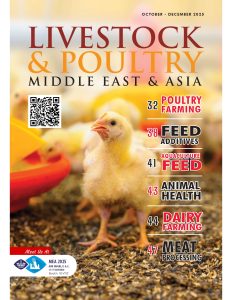The diversity of infectious bursal disease virus (IBDV) strains worldwide poses a challenge to the poultry industry, but vector vaccines are helping producers successfully manage flock health, said Angela Hartman, PhD, research director, Zoetis.
For background, very virulent IBDV (vvIBDV) strains have been circulating globally for decades. However, in the United States, while high mortality can rarely occur, the bigger problem has been performance issues due to immune suppression caused by variant strains, she said.Recently, more complex issues have arisen in the Asia-Pacific region, where live vaccine-virus strains have recombined with field strains, posing questions over continued vaccine efficacy.
“In some of those cases, the vaccines aren’t able to work as effectively, because the epitopes needed for vaccine efficacy have changed where they have recombined. Unfortunately, we’re now actually seeing even additional recombination of those isolates with very virulent strains,” Hartman said.
Vector vaccine advantages
In the face of such field challenges, herpesvirus of turkey (HVT) vector vaccines may provide a solution. They bring several key advantages – including compatibility with both in ovo and subcutaneous application and the way the HVT vector replicates within the bird – to provide both early onset of immunity and lifelong protection in broilers, she said.
“Early protection is essential because IBDV tends to affect younger birds and is highly immunosuppressive,” Hartman said. “However, just as critical as early onset of immunity is, so is ensuring that we have protection against relevant contemporary IBDV challenges.”
Early onset of immunity
Challenge studies including Poulvac® Procerta® HVT-IBD showed early onset of immunity against classical and variant IBDV at 14 days of age. For vvIBDV, efficacy was observed as early as 12 days of age – through both in ovo and subcutaneous routes – and remained high at later time points.1“Unlike many live IBD vaccines, HVT-IBD vaccines can be administered in the hatchery, as MDA do not interfere with IBD protection,” Hartman said. “The strong efficacy we observed in birds with high MDA confirms that Poulvac Procerta HVT-IBD helps close the window of IBD susceptibility between the loss of maternal immunity and the onset of active immunity initiated by vaccination. The result would be fewer early infected flocks and reduced bursal damage as maternal antibodies start to wane at around 14 days of age.”




















